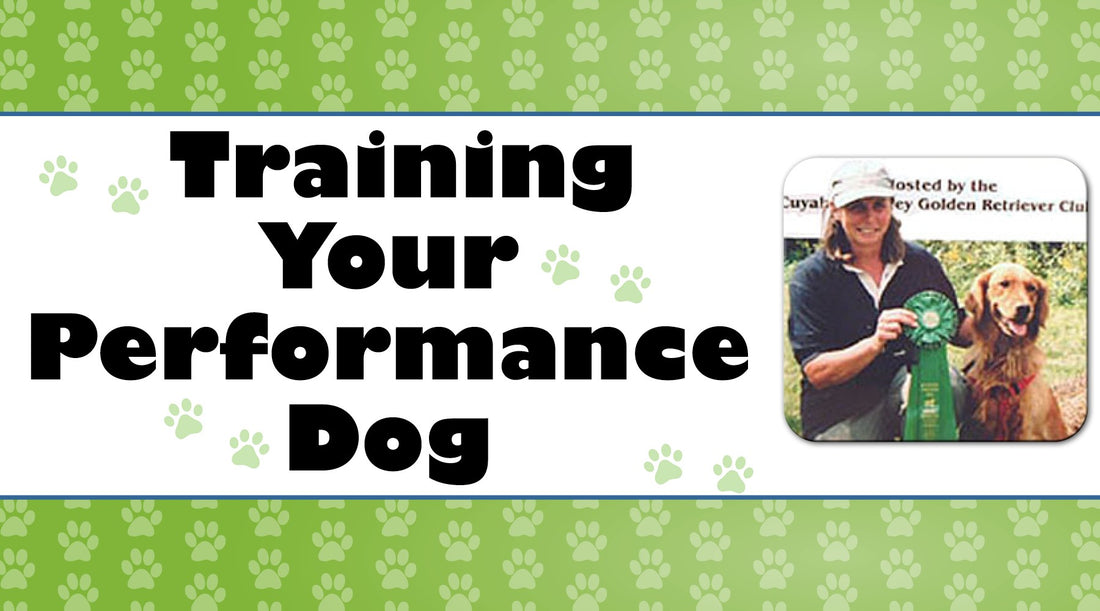Agility, Obedience, Tracking
By Carolyn Fuhrer
No matter which dog sport you may choose to participate in, training for a good solid performance takes time, commitment, energy, enthusiasm, knowledge, and patience.
At some point – no matter how good a trainer you are and how wonderful your dog is - you will run into problems. The best way to solve a problem is to recognize the early stages of breakdown and clarify the requirements of the exercise to the dog before, the dog feels he has options about how to perform. So, as soon as you feel something is not going as you would like, stop and try to identify the problem. Do NOT just keep repeating the exercise or skill hoping it will get better.
Ask yourself (and be honest) – do you have bright attention from your dog before you ask for a behavior? If not, you need to work on attention. Work on achieving willing, bright focus from your dog before you start training and throughout your training session. Attention is not optional. Does your dog truly understand the exercise or skill you are asking for? Or have you proceeded too quickly without enough foundation? Go back to the beginning and increase confidence on each step.
Does your dog feel that performance is optional? Improper use of food can convince the dog to think “if I don’t see the cookies, I don’t have to work.” In order to convince your dog that performance is not optional, your dog must value the reward and understand how to achieve the reward. Work pays – lack of work does not pay. You must, at some time, be able to show your dog the correct performance or position by touching your dog. If your dog stays away from you, will not willingly come into your space or will not let you put a hand in his collar, you will not be able to correct certain behaviors. Dogs must understand which behaviors work and therefore will pay – and which behaviors do not work and therefore will not pay or cause the fun to end. Your dog needs to make choices and expect fair and consistent consequences for their behaviors.
Another reason your dog may not perform an exercise is because he is worried or afraid to make a mistake. If this is the case, you need to look at yourself and the first 3 areas we discussed: attention, understanding the exercise, and thinking behavior is optional. If your dog is confused about what is expected in any of these areas, he may just decide not to try rather than guess at what you want.
You need to look at yourself and your attitude about the problem. Are you frustrated, disappointed, impatient, unfair to your dog because you have not taught him properly or perhaps went too quickly in a progression?
Before you criticize your dog, you need to look carefully at each area we discussed and be willing to go back to the beginning and do a better job. Just repeating performances or taking out food to get a behavior will not solve the training problem.
Beware of internet quick fixes. These solutions may not fit in with your training foundation and will cause more confusion.
Taking the time to understand the problem and working to solve the problem is what good training is all about, and it will strengthen your relationship with your dog by building trust and cooperation.
Carolyn Fuhrer has earned over 130 AKC titles with her Golden Retrievers, including 4 Champion Tracker titles. She is also an AKC Tracking Judge. You can contact her with questions, suggestions, and ideas for her column by e-mailing carolyn@northstardogschool.com.

